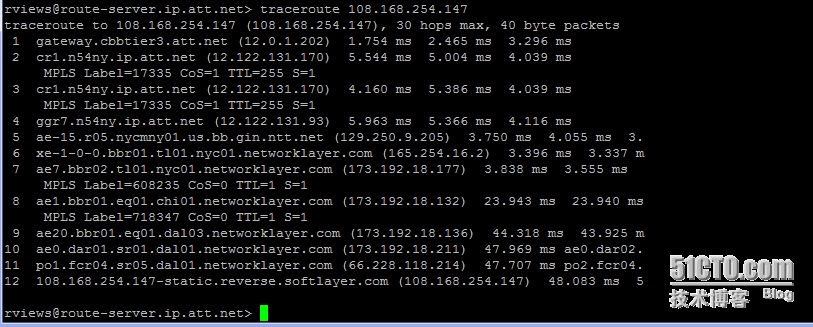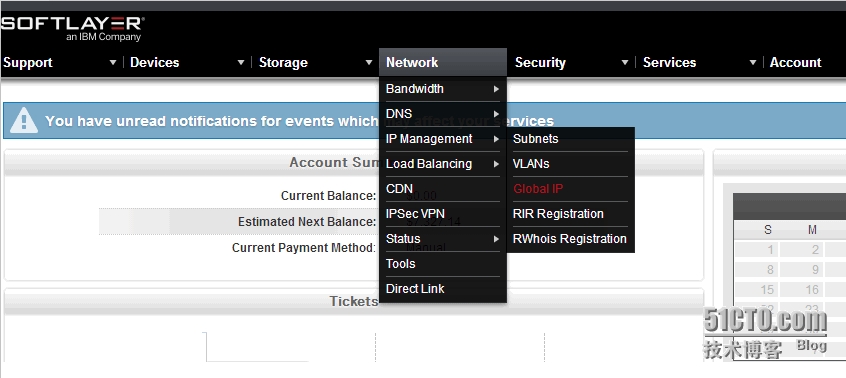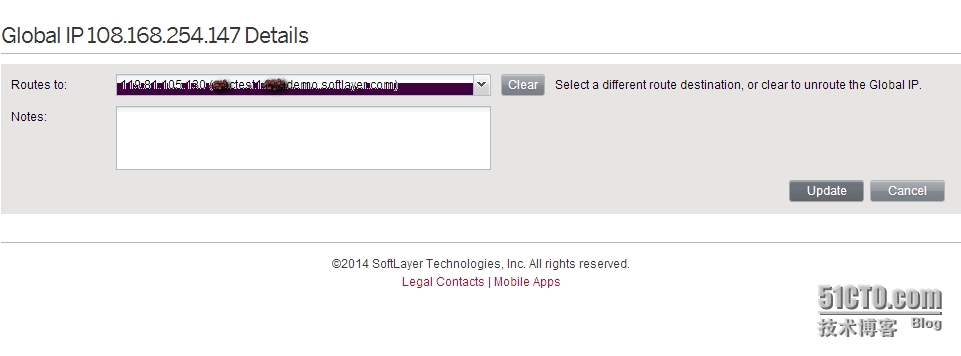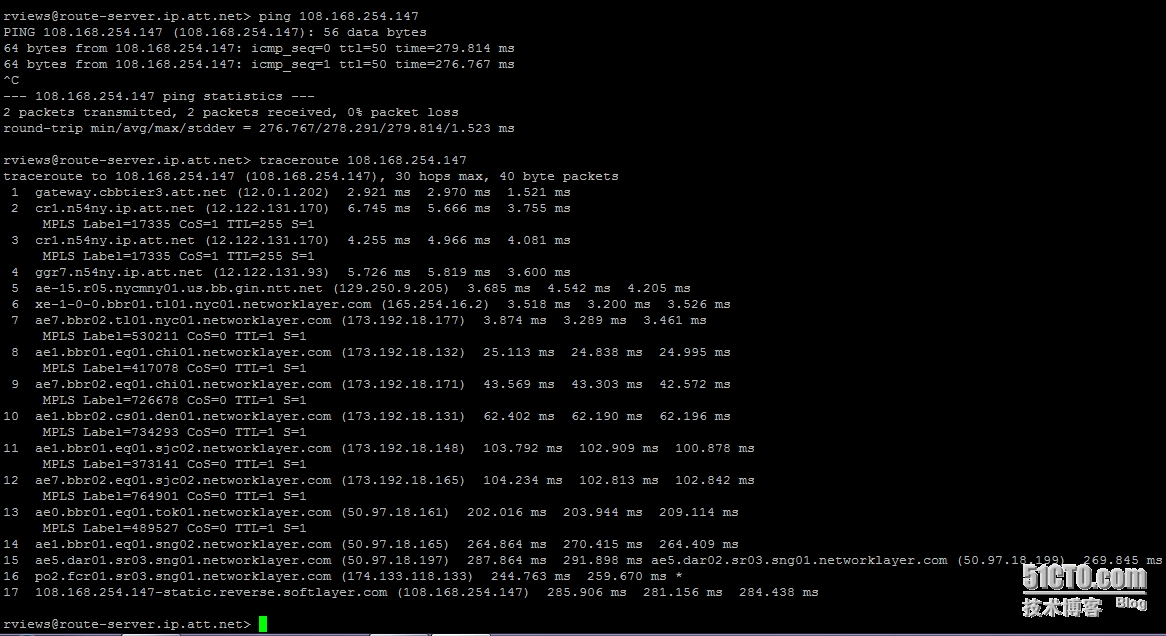Global IP in Softlayer
Global IP's provide IP flexibility by allowing users to shift workloads between servers (even in different datacenters). Global IP's also provide IP persistence by allowing for transitions between servers and CCI's; for example upgrading from a CCI to a dedicated system without having your IP tied to a particular server or VLAN.
Next will show you how to use this feature in the real world.
In the customer portal: control.softlayer.com
Step 0: Order a global IP and bind to a American server. Please see the traceroute output
 Now we are going to move this global IP to a server at Softlayer Singapore DC.
Now we are going to move this global IP to a server at Softlayer Singapore DC.
Step 1: Go into Network and Select IP management, then global IP

Step 2: Route global IP to a server at Singapore(Note: only for SoftLayer Public Network)

Step 3: Configure the global IP at the server which you specified at Step 2. Here, my box is Centos.
more /etc/sysconfig/network-scripts/ifcfg-eth1:1
DEVICE=eth1:1
IPADDR=108.168.254.147
NETMASK=255.255.255.255
NETWORK=108.168.254.147
ONBOOT=yes
Restart network service:
service network restart
Step 4: Verify the global IP works well at Singapore DC.

From the above you can see you are using a American IP at Singaport DC sever.
Global IP feature gives the possiblity for a simple but manual DR solution for SMB.
Let us consider the scenario below: One web application is on www.example.com. If we configured the DNS to resolve the URL www.exmpale.com to a global IP, the global IP is configured on 1 server at US DC. When the US server is failed for any reason, you can power up another backup server at Singapore DC to provide the same service. .
Pros
NO NEED to update DNS
NO need to wait for DNS propogation which may take days
Cons
-Global IP's will not work for local load balancers ---However, I think the local LB here means Softlayer offered LB function.
I still believe that you can make use of customized LB (e.g. F5 LTM or Citrix Netscaler) to work with this global IP feature for better and interesting DR or Active-Active soltution.)
-By itself, Global IP's are not an automatic failover solution due to the lack of health checks